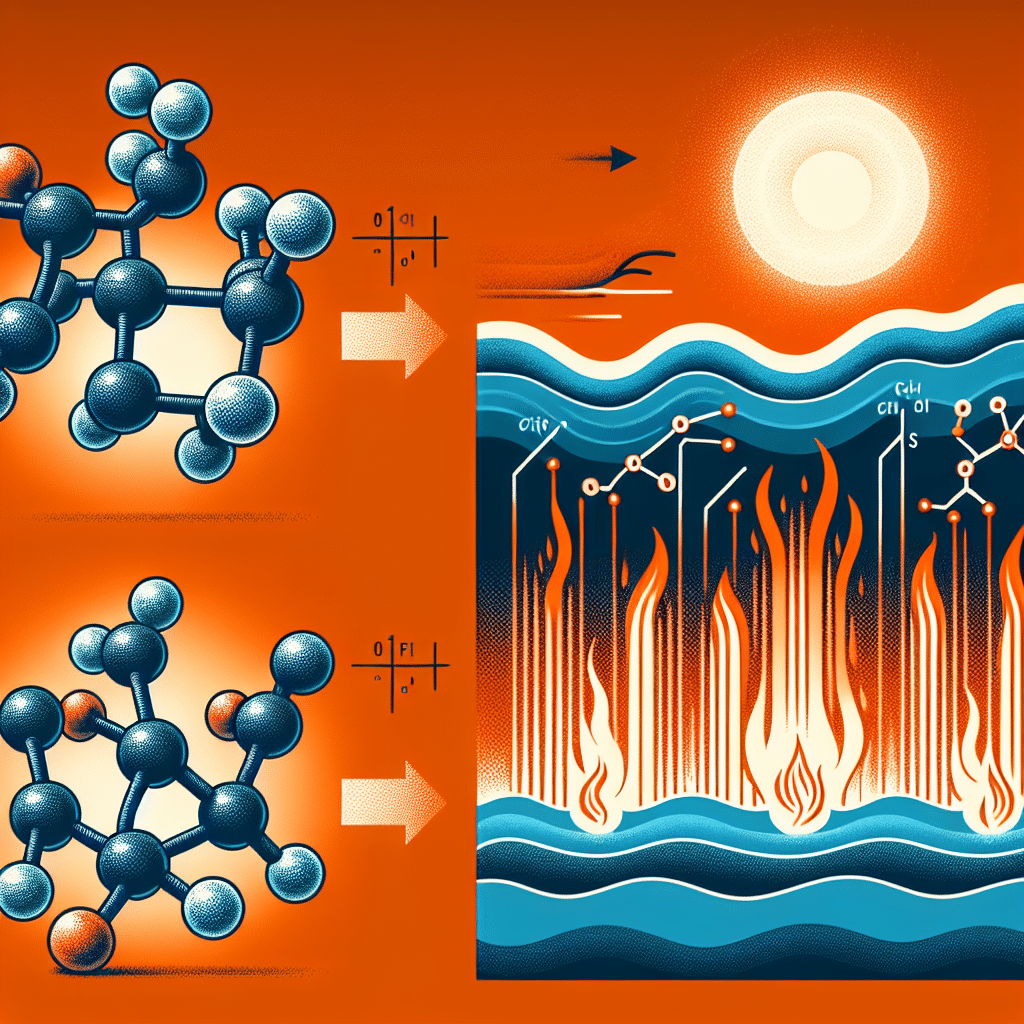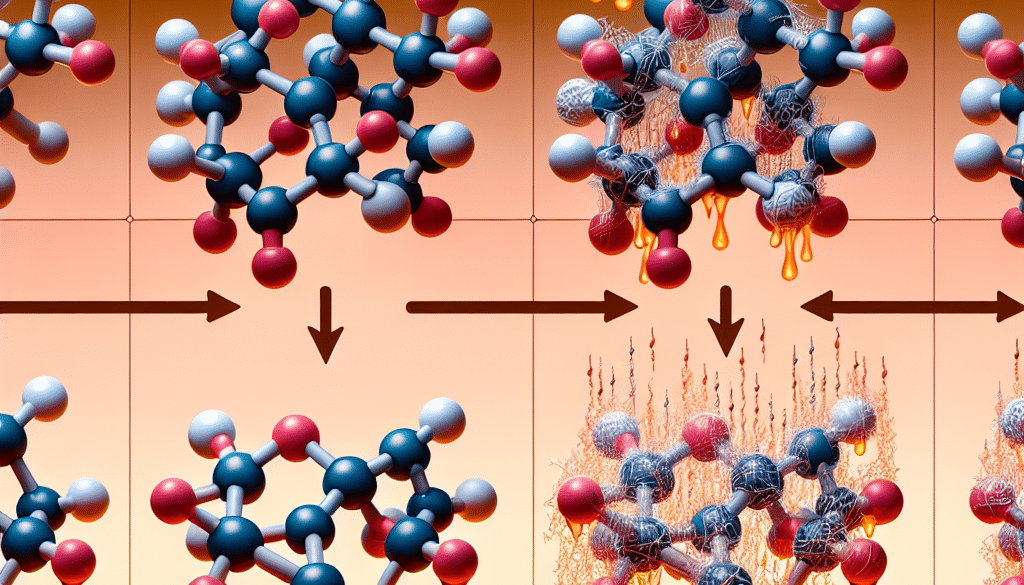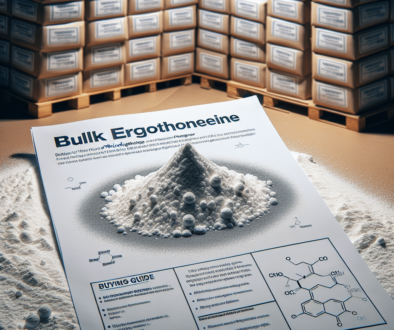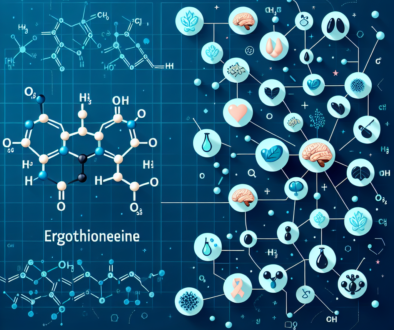Is ergothioneine destroyed by heat? The answer
Table of Contents
- Ergothioneine Stability: Does Heat Compromise Its Benefits?
- Understanding Ergothioneine and Its Importance
- Heat Exposure and Ergothioneine: What Does Research Say?
- Thermal Degradation of Ergothioneine
- Factors Influencing Ergothioneine Stability
- Case Studies and Examples
- Maximizing Ergothioneine Retention in Foods
- Implications for Dietary Intake and Food Preparation
- Conclusion: Balancing Heat and Ergothioneine Preservation
- Discover ETprotein’s High-Quality Protein Products
Ergothioneine Stability: Does Heat Compromise Its Benefits?

Ergothioneine, a naturally occurring amino acid, has been the subject of numerous studies due to its potential antioxidant and cytoprotective properties. Found in various foods such as mushrooms, grains, and meat, ergothioneine is believed to play a role in combating oxidative stress and may contribute to the prevention of chronic diseases. However, a critical question for both consumers and food manufacturers is whether ergothioneine is stable when exposed to heat during cooking or processing. This article delves into the science behind ergothioneine’s thermal stability and its implications for dietary intake and food preparation.
Understanding Ergothioneine and Its Importance
Ergothioneine (ET) is a sulfur-containing derivative of the amino acid histidine, which is distinguished by its unique antioxidant properties. Unlike other antioxidants, ergothioneine has a specific transporter in the human body, suggesting a significant biological role. The potential health benefits associated with ergothioneine include:
- Protection against oxidative damage
- Anti-inflammatory effects
- Potential to slow down the aging process
- Neuroprotective properties
Given these benefits, understanding how ergothioneine behaves under various conditions, including heat exposure, is essential for maximizing its positive effects.
Heat Exposure and Ergothioneine: What Does Research Say?
Several studies have investigated the thermal stability of ergothioneine to determine how it is affected by cooking and processing. The findings are crucial for both dietary recommendations and the development of ergothioneine-containing products.
Thermal Degradation of Ergothioneine
Research indicates that ergothioneine exhibits a degree of thermal stability, but its retention in foods can vary based on cooking methods and temperatures. For example, a study published in the Journal of Agricultural and Food Chemistry found that boiling mushrooms led to a significant loss of ergothioneine, while frying resulted in a lesser reduction. This suggests that ergothioneine can degrade at high temperatures, particularly in the presence of water.
Factors Influencing Ergothioneine Stability
The stability of ergothioneine during heat exposure is influenced by several factors:
- Cooking Method: Dry-heat methods like frying may preserve more ergothioneine compared to wet-heat methods such as boiling or steaming.
- Temperature: Higher temperatures can accelerate the degradation of ergothioneine.
- Duration: Prolonged cooking times can lead to greater losses of ergothioneine.
- Food Matrix: The composition of the food containing ergothioneine can affect its thermal stability.
Case Studies and Examples
Case studies have shown that ergothioneine levels in certain mushroom species remained relatively stable when subjected to short-term cooking at moderate temperatures. However, long-term thermal processing, such as canning, resulted in more significant losses. These findings highlight the importance of cooking duration and intensity in preserving ergothioneine content.
Maximizing Ergothioneine Retention in Foods
To ensure the maximum retention of ergothioneine in foods, consider the following recommendations:
- Opt for cooking methods that use lower temperatures and shorter cooking times.
- When possible, consume ergothioneine-rich foods raw or lightly cooked.
- Be mindful of the cooking medium, as some studies suggest that cooking in water may lead to greater losses.
Implications for Dietary Intake and Food Preparation
The potential degradation of ergothioneine during cooking has implications for dietary intake and food preparation. To maintain the nutritional value of ergothioneine-rich foods, it is advisable to use cooking methods that minimize heat exposure. Additionally, food manufacturers should consider the impact of processing on ergothioneine content when developing products that tout the benefits of this compound.
Conclusion: Balancing Heat and Ergothioneine Preservation
In conclusion, while ergothioneine is relatively stable, it is not impervious to degradation from heat. The extent of its stability depends on various factors, including cooking method, temperature, duration, and the food matrix. By understanding these factors and adjusting cooking practices accordingly, it is possible to preserve the ergothioneine content in foods and maximize its potential health benefits.
Discover ETprotein’s High-Quality Protein Products
If you’re looking for protein products that may include the benefits of ergothioneine, ETprotein offers a range of high-quality options. Their products are designed with purity and efficacy in mind, ensuring that you receive the full potential of ergothioneine’s properties.
ETprotein’s offerings include a variety of organic bulk vegan proteins and L-(+)-Ergothioneine grades suitable for different industries. Whether you’re involved in nutraceuticals, pharmaceuticals, cosmeceuticals, or food and beverage production, ETprotein has a solution to meet your needs.
For more information on ETprotein’s products and how they can enhance your offerings, please contact sales(at)ETprotein.com.
About ETprotein: ETprotein, a reputable protein and L-(+)-Ergothioneine (EGT) Chinese factory manufacturer and supplier, is renowned for producing, stocking, exporting, and delivering the highest quality organic bulk vegan proteins and L-(+)-Ergothioneine. They include Organic rice protein, clear rice protein, pea protein, clear pea protein, watermelon seed protein, pumpkin seed protein, sunflower seed protein, mung bean protein, peanut protein, and L-(+)-Ergothioneine EGT Pharmaceutical grade, L-(+)-Ergothioneine EGT food grade, L-(+)-Ergothioneine EGT cosmetic grade, L-(+)-Ergothioneine EGT reference grade and L-(+)-Ergothioneine EGT standard. Their offerings, characterized by a neutral taste, non-GMO, allergen-free attributes, with L-(+)-Ergothioneine purity over 98%, 99%, cater to a diverse range of industries. They serve nutraceutical, pharmaceutical, cosmeceutical, veterinary, as well as food and beverage finished product distributors, traders, and manufacturers across Europe, USA, Canada, Australia, Thailand, Japan, Korea, Brazil, and Chile, among others. ETprotein specialization includes exporting and delivering tailor-made protein powder and finished nutritional supplements. Their extensive product range covers sectors like Food and Beverage, Sports Nutrition, Weight Management, Dietary Supplements, Health and Wellness Products, and Infant Formula, ensuring comprehensive solutions to meet all your protein needs. As a trusted company by leading global food and beverage brands and Fortune 500 companies, ETprotein reinforces China’s reputation in the global arena. For more information or to sample their products, please contact them and email sales(at)ETprotein.com today.












